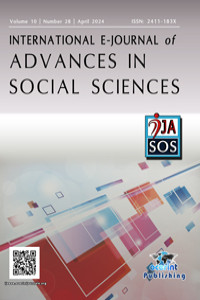Abstract
References
- Brasil, Ministério da Saúde (2020). Diretrizes para diagnóstico e tratamento da COVID-19. https://portalarquivos.saude.gov.br/images/pdf/2020/May/08/Diretriz-Covid19-v4-07- 05.20h05m.pdf
- Brasil. Constituição da República Federativa do Brasil de 1988. (1988). http://www.planalto.gov.br/ccivil_03/_Constituicao/Constituiçao.htm
- Brasil. Decreto nº 7.508, de 28 de junho de 2011 (2011). http://www.planalto.gov.br/ccivil_03/_ato2011-2014/2011/decreto/D7508.htm
- Brasil. Ministério da Saúde. Boletim epidemiológico (2021). https://www.gov.br/saude/pt-br/centrais-de-conteudo/publicacoes/boletins/boletins-epidemiologicos/covid-19/2021/boletim_epidemiologico_covid_52_final2.pdf
- Costa, C.; Pinto, P.; Costa, R.; Bouzada, M. (2022). Paradigmas da gestão de imunizantes: o uso de métodos quantitativos como suporte à decisão em tempos de Covid-19 no estado do Rio de Janeiro. Revista de Gestão e Secretariado, 13, 2197-2225.
- Fundação Oswaldo Cruz, FIOCRUZ. (2022). Avaliação Digital da Campanha de Vacinação Contra covid-19 no Brasil: Informe referente a situação em novembro de 2021. https://vigivac.fiocruz.br/
- Instituto Brasileiro de Geografia e Estatística (IBGE). (2010). Censo demográfico 2010. IBGE.
- Ketchen, Jr; David, J.; Shook, Christopher, L. (1996). A aplicação da análise de cluster na Pesquisa em Gestão Estratégica: Uma análise e crítica. Revista de Gestão Estratégica, 17(6), 441-458. https://doi.org/10.1002/(SICI)1097-0266(199606)17:6%3C441::AID-SMJ819%3E3.0.CO;2-G
- Lachi, R. L.; Rocha, H. V. da. (2005). Aspectos básicos de clustering: conceitos e técnicas. https://www.ic.unicamp.br/~reltech/2005/05-03.pdf
- Oliveira, L. N. de; Santos, A. K. F. de S.; Carvalho, R. M. C. de; Cosme, F. H. de S.; Querino, C. A. C.; Nascimento, R. F. do; Macedo, C. L. (2020). Avaliação da eficácia e segurança das principais vacinas utilizadas contra COVID-19 no Brasil. Brazilian Journal of Development, 8(4), 31753-31767. https://brazilianjournals.com/ojs/index.php/BRJD/article/view/47202
- Organização Pan-Americana da Saúde, OPAS (2020). Perguntas frequentes sobre as vacinas candidatas contra a COVID-19 e os mecanismos de acesso. https://iris.paho.org/bitstream/handle/10665.2/52669/OPASBRAFPLIMCOVID-19200018_por.pdf?sequence=1&isAllowed=y
- Organização Pan-Americana da Saúde, OPAS (2022). OMS declara emergência de saúde pública de importância internacional por surto de novo coronavírus. https://www.paho.org/pt/news/30-1-2020-who-declares-public-health-emergency-novel-coronavirus
- Rio de Janeiro (2021). Secretaria de Estado de Saúde do Rio de Janeiro. Plano de contingência para vacinação contra covid-19. 2. versão. Secretaria de Estado de Saúde do Rio de Janeiro.
- Rio de Janeiro (2022). Informações Estratégicas em Vigilância em Saúde. https://www.rio.rj.gov.br/web/sms/informacoes-estrategicas-em-vigilancia-em-saude
- Zumel, N.; Mount, J. (2014). Practical Data Science with R. Manning
CLUSTER ANALYSIS FOR GEOGRAPHIC PRIORITIZATION OF COVID-19 VACCINATION IN THE STATE OF RIO DE JANEIRO
Abstract
According to data compiled by the World Health Organization, by the second half of 2022, COVID-19 had caused approximately 15 million deaths globally. At the beginning of the pandemic in Brazil, the state of Rio de Janeiro was initially classified as the one with the highest lethality rate, registering one death for every 20 infected patients. In the initial phase of the vaccination campaign in this state, only 488,320 doses of the immunizer were made available in the first batch of the immunizer. The purpose of this study was to identify which municipalities should have received priority in the initial supply of the vaccine in the state, given that different cities showed significant disparities in the numbers of COVID-19 cases and deaths. Using data from the main epidemiological observatories, we sought to assess the expected impact on the number of years of life saved (YLS) – instead of lives saved – if there had been a prioritization in the distribution of vaccines in specific groups of municipalities through cluster analysis. The results indicated that concentrating vaccination in the municipality of Rio de Janeiro, to the detriment of the other conglomerates, would have more positive effects on the number of years saved. The primary contribution of this research lies in identifying effective practices for distributing vaccines in situations of scarce resources.
References
- Brasil, Ministério da Saúde (2020). Diretrizes para diagnóstico e tratamento da COVID-19. https://portalarquivos.saude.gov.br/images/pdf/2020/May/08/Diretriz-Covid19-v4-07- 05.20h05m.pdf
- Brasil. Constituição da República Federativa do Brasil de 1988. (1988). http://www.planalto.gov.br/ccivil_03/_Constituicao/Constituiçao.htm
- Brasil. Decreto nº 7.508, de 28 de junho de 2011 (2011). http://www.planalto.gov.br/ccivil_03/_ato2011-2014/2011/decreto/D7508.htm
- Brasil. Ministério da Saúde. Boletim epidemiológico (2021). https://www.gov.br/saude/pt-br/centrais-de-conteudo/publicacoes/boletins/boletins-epidemiologicos/covid-19/2021/boletim_epidemiologico_covid_52_final2.pdf
- Costa, C.; Pinto, P.; Costa, R.; Bouzada, M. (2022). Paradigmas da gestão de imunizantes: o uso de métodos quantitativos como suporte à decisão em tempos de Covid-19 no estado do Rio de Janeiro. Revista de Gestão e Secretariado, 13, 2197-2225.
- Fundação Oswaldo Cruz, FIOCRUZ. (2022). Avaliação Digital da Campanha de Vacinação Contra covid-19 no Brasil: Informe referente a situação em novembro de 2021. https://vigivac.fiocruz.br/
- Instituto Brasileiro de Geografia e Estatística (IBGE). (2010). Censo demográfico 2010. IBGE.
- Ketchen, Jr; David, J.; Shook, Christopher, L. (1996). A aplicação da análise de cluster na Pesquisa em Gestão Estratégica: Uma análise e crítica. Revista de Gestão Estratégica, 17(6), 441-458. https://doi.org/10.1002/(SICI)1097-0266(199606)17:6%3C441::AID-SMJ819%3E3.0.CO;2-G
- Lachi, R. L.; Rocha, H. V. da. (2005). Aspectos básicos de clustering: conceitos e técnicas. https://www.ic.unicamp.br/~reltech/2005/05-03.pdf
- Oliveira, L. N. de; Santos, A. K. F. de S.; Carvalho, R. M. C. de; Cosme, F. H. de S.; Querino, C. A. C.; Nascimento, R. F. do; Macedo, C. L. (2020). Avaliação da eficácia e segurança das principais vacinas utilizadas contra COVID-19 no Brasil. Brazilian Journal of Development, 8(4), 31753-31767. https://brazilianjournals.com/ojs/index.php/BRJD/article/view/47202
- Organização Pan-Americana da Saúde, OPAS (2020). Perguntas frequentes sobre as vacinas candidatas contra a COVID-19 e os mecanismos de acesso. https://iris.paho.org/bitstream/handle/10665.2/52669/OPASBRAFPLIMCOVID-19200018_por.pdf?sequence=1&isAllowed=y
- Organização Pan-Americana da Saúde, OPAS (2022). OMS declara emergência de saúde pública de importância internacional por surto de novo coronavírus. https://www.paho.org/pt/news/30-1-2020-who-declares-public-health-emergency-novel-coronavirus
- Rio de Janeiro (2021). Secretaria de Estado de Saúde do Rio de Janeiro. Plano de contingência para vacinação contra covid-19. 2. versão. Secretaria de Estado de Saúde do Rio de Janeiro.
- Rio de Janeiro (2022). Informações Estratégicas em Vigilância em Saúde. https://www.rio.rj.gov.br/web/sms/informacoes-estrategicas-em-vigilancia-em-saude
- Zumel, N.; Mount, J. (2014). Practical Data Science with R. Manning
Details
| Primary Language | English |
|---|---|
| Subjects | Sociology of Health, Quantitative Methods in Sociology, Management Sociology |
| Journal Section | Articles |
| Authors | |
| Early Pub Date | April 29, 2024 |
| Publication Date | May 3, 2024 |
| Submission Date | April 16, 2024 |
| Acceptance Date | April 25, 2024 |
| Published in Issue | Year 2024Volume: 10 Issue: 28 |
Contact: ijasosjournal@hotmail.com
The IJASOS Journal's site and its metadata are licensed under CC BY
Published and Sponsored by OCERINT International © 2015- 2025


